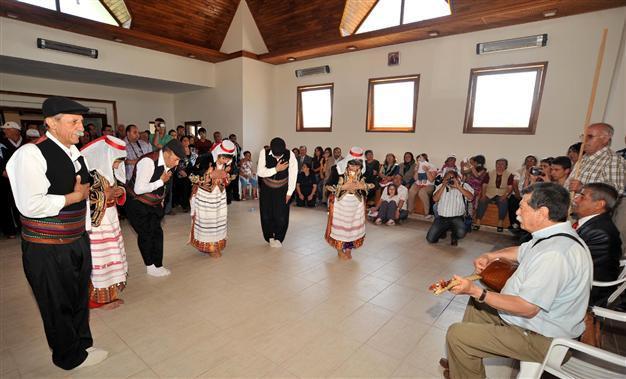Court rejects cemevis as houses of worship
ANKARA - Anatolia News Agency

Cemevi. DHA Photo
Turkey’s Supreme Court of Appeals has ruled that that only mosques and masjids can be considered places of worship.The Supreme Court of Appeals overturned the ruling of a lower court that rejected a closure case filed by the Ankara Public Prosecutor’s Office against the Çankaya Cemevi Building Association due to expressions in their bylaws indicating that the group regards the cemevi as a place of worship.
Ankara’s 16th Civil Court rejected the case on the grounds that “For centuries, cemevis have been known and accepted as Alevi places of worship by society. The expression ‘Cemevis are places of worship,’ included in the bylaws of the association is not against Article No. 2 of the Constitution, and it is not illegal.” After the decision was appealed, the Court of Appeals’ 7th Civil Chamber took up the case file and reversed the judgment of the court with a majority of votes.
Row at the Parliament
On July 23, main opposition Republican People’s Party (CHP) Tunceli deputy Hüseyin Aygün filed suit against the Parliament Speaker’s Office for violating the constitutionally guaranteed freedom of religion and conscience as well as the principle of secularity by rejecting his request for a cemevi (Alevi house of worship) to be opened at Parliament. Aygün submitted his petition on July 23 to a court of first instance in his hometown of Tunceli so that it can be forwarded to an administrative court on duty in Ankara. Stating that he is a parliamentarian who follows an “Alevi-Bektaşi-Kızılbaş” system of belief, Aygün said the Parliament Speaker’s Office had refused on July 6 his request dated May 7, on the grounds that “Alevism is not a separate religion, but a formation within Islam, and the place of worship in Islam is the mosque.” The refusal is not compatible with freedom of religion and conscience, and also violates the principle of secularity, all of which are protected by the Constitution, Aygün’s petition claims.
















